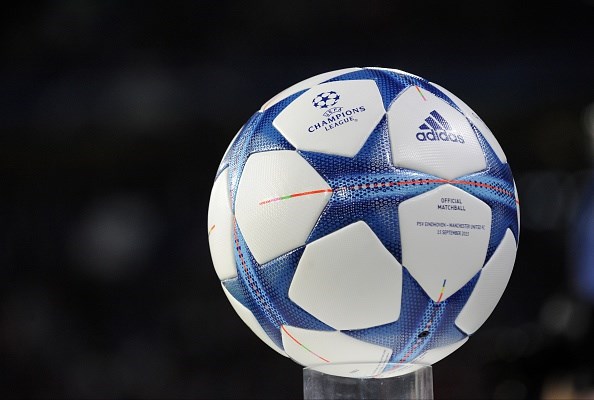The Premier League has claimed to be “the best league in the world” for many years, but in recent years has appeared to lose its grip on this prestigious title. This is mostly put down its continued failure in European competition.
Not since Chelsea won the title in 2012 with victory over Bayern Munich has an English team impressed in Europe and this record continued on Tuesday night as both Manchester United and Manchester City fell to somewhat surprising 2-1 defeats to PSV Eindhoven and Juventus respectively.
But does this mean that the Premier League is no longer the world’s top league? Other leagues have certainly made convincing cases in the past few years: La Liga has the most compelling case, with Barcelona winning the Champions League last season and the two Madrid clubs contesting the final the previous year; Serie A continues to improve with Juventus growing stronger, highlighted by their Champions League final appearance last season; and the Bundesliga has really come to the fore with the emergence of Borussia Dortmund and Wolfsburg alongside ever-presents Bayern Munich. But, despite their recent travails in European competition, there is still no league that can match the competitiveness and intensity of the Premier League.
In many leagues, the league winner is clear every year, or at least it will be one of at most three teams who will triumph with the other 17 teams making up the numbers. In Spain, Barcelona and Real Madrid dominate each year, with Atletico causing the occasional upset. In Germany, no team has truly been able to challenge Bayern Munich for a number of years, with challengers rising and falling all too quickly.
In England, however, the destination of the title is never clear. The majority of fans and pundits backed Chelsea to follow up last year’s convincing title win with another this year, but it is Manchester City who are the runaway leaders after just 5 games, with Chelsea languishing in 17th place with just 4 points. Arsenal and Manchester United now look the most likely of the richest clubs to challenge City for the title, but both have their own problems. United currently have only 19-year old new signing Anthony Martial available as a striker, whilst Arsenal continue to lack consistency in both attack and defence despite their much praised free-flowing style of play.
Meanwhile smaller clubs have made more impressive starts to the season. Crystal Palace have kicked on under the leadership of Alan Pardew, adding Yohan Cabaye, Alex McCarthy and Bakary Sako to an already settled and exciting squad full of attacking talent and defensive grit. Leicester have been rejuvenated under new manager Claudio Ranieri and, inspired by world-class performances from Riyadh Mahrez and Jamie Vardy, have propelled themselves up to second in the table. Even Slaven Bilic’s West Ham have made an impressive start to the season despite their early disappointment in the Europa League, beating both Arsenal and Liverpool.
There is no reason why some or all of these teams should not continue this form and challenge the Champions League and Europa League places in place of the richer clubs. The gradual fall of both Liverpool and Spurs and the poor form of Chelsea and Southampton will have been noted by Pardew, Ranieri and other aspiring managers and they will see that there has never been a better time to push on in their efforts to make an impression in the top half of the table.
While the closing of the gulf in class may be making the Premier League a more interesting spectacle, could it begin to weaken the Premier League’s performance in Europe? In La Liga and the Bundesliga, the talent continues to be bought up by the top couple of teams, continually strengthening those teams who can afford the best and widening the gulf in class between the top and bottom. In the Premier League, on the other hand, in spite of the seemingly constant flow of money into the top clubs, the talent seems to be spreading itself out. Where in the past, exciting prospects such as Mahrez and Yannick Bolasie would be warming the bench for Chelsea or Manchester United, they are now causing the best defences problems, playing for smaller clubs. Whilst this will undoubtedly create more competition in the league, it could end up weakening the squads that enter both European competitions. Each team will have a competent squad, but with the spread of talent across clubs, they will never be able to compete with the financial clout and transfer dominance of the top Spanish and German clubs.
Furthermore, the intensity of the division must also be taken into account. The benefits of the European winter break have been much debated and have given a reasonable excuse for the poor showings of recent seasons, but perhaps it is not just the quantity of matches that contributes to team burnout, but the sheer intensity of matches in the Premier League that is a far bigger factor. Each match is gradually becoming more of a challenge for every club and, added to the build-up of matches around the Christmas period, the fatigue of each team will continue to increase past the group stages into the later rounds.
However the next few league seasons turn out, I cannot see an English club putting forward a realistic challenge for the Champions League in the next 3 or 4 years. English football and the top clubs in the country have a choice to make: a league full of surprises and where no season will be the same, or a predictable league with a select group of teams capable of challenging for European glory. No league has yet found a way to do have both and I can’t see it happening soon.

Ian goes back to the very early days of CrunchSports, having been tirelessly covering soccer for us for over 10 years.









